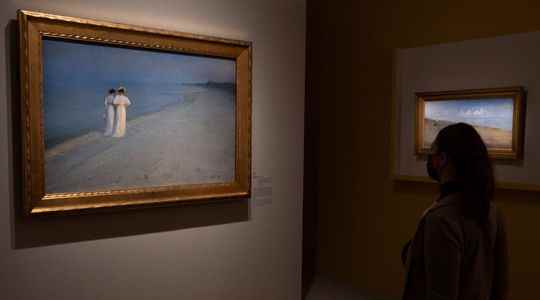There always comes a time in presidential campaigns when observers turn around, scratch their heads, rummage through their files and exclaim: “What about culture? Didn’t we talk about culture? What did the candidates say about Culture ?” And, just as invariably, the response flares up: “Nothing.” The most amusing thing is that a parallel phenomenon agitates all the campaign teams. Always comes this meeting (usually evening) where, after having discussed the feasibility of the umpteenth social check, we hear a small voice rising: “And about culture, what do we say?”
We then remember that there is a “working group” which has worked valiantly. We especially remember that artists and people of culture, in addition to voting, speak – and are listened to. Better to accede dare-dare to the dream of the profession to see emerge “a great cultural ambition” before being caught up in the vengeful interview of a comedian in sight, or a writer with success growling on the loss of speed of our beautiful country in this matter.
It is not, to tell the truth, the subjects which are lacking. Protecting creators from the intrigues of digital giants, redefining France’s ambitions in terms of cinema, theatre, heritage, this is salutary work that must be carried out. But usually what wins is the theme of access. It is even an obsession widely shared by the candidates. Terrific convergence.
Obsession with “access” to culture
Politicians are paralyzed by the idea that a Frenchman, especially if he is young, would have the entrance to a museum, a cinema, a bookstore closed. It is therefore necessary to deploy “access policies”. This generally involves an additional check, like ration tickets in the past, but also the great dream of homelessness: if you don’t go to culture, culture will go to you. A bit like bush hospitals, in short. From there, a thousand ideas for transporting the most beautiful works of humanity by convoy to the inhabitants of peripheral areas or deep rural areas. Joy of the Corrèze farmer coming face to face, on leaving his home on a beautiful winter morning, with the Venus de Milo or The Raft of the Medusa, not to mention Duchamp’s urinal.
The praise of the theater club and the cinema club by Valérie Pécresse during a twilight press conference stemmed from this obsession with access, rooted in the existential anguish that our young compatriots did not one day tread the boards from a platform in the courtyard, draped in a toga of seersucker to declaim verses whose hemistiches they would have massacred. After all, the President of the Republic himself entered the fray by promising toabolish the audiovisual license feethat is to say, to watch television for free, which has not failed to move the almost 20 million monthly users by Netflix in France. Access, always access.
The myth of the “encounter”
This generous and shared vision lacks an essential question: through access, what do we want to obtain? That the French read, go to the museum, to the concert? Fine – but why? To be more human? More thoughtful? Broader-minded? Is what we call culture only a complement to school? Have we not drifted from the Enlightenment project by ending up considering that there is no civic virtue without knowledge of the works of culture, when it could well be otherwise, and that Basically what it takes to know, virtue, compassion, reason to simply be a good person can be found in minds that have never heard of Molière or Picasso?
The question that haunted George Steiner – “How can the same man torture in Auschwitz by day and play Mozart at home in the evening?” – remains abysmal in our postmodern relationship to the function of culture. It is constantly eluded.
To be forgiven for a strictly quantitative approach, cultural public action has constructed the myth of the “encounter”. The State opens the doors for the “shock” of an encounter with a work, a writer, an artist that will change the life of the little citizen who, without it, would have remained in his cave without seeing the sun of the True. . It’s beautiful, but it’s less Plato than Tinder culture version. This lazy conviction reigns that by sowing broadly we reap thickly. One day perhaps, we will ask ourselves again the question of what we sow, and especially what we harvest.
